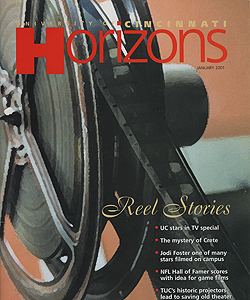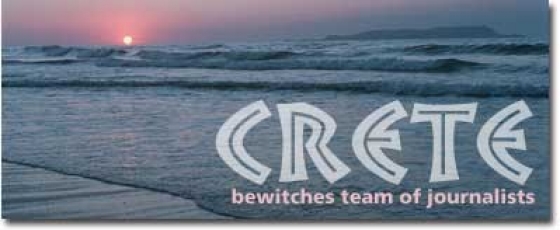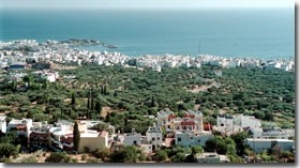By Marianne Kunnen-Jones
Photographs by Lisa Ventre
Headed down the sloping twist of a road, the bus stopped. The driver turned off the lights and pointed to the moon. Just about full, it glowed in a cloudless sky above the mountains looming on either side of us. A faculty member in the back thought we had stopped for someone or something to cross the road.
But no, this is Crete. Motorists here, known worldwide for their harrowing driving habits, don't brake for other vehicles or pedestrians; they brake to watch the moon beaming over hills of olive groves.
I joined in as riders "oohed" and "aahed" at the breathtaking scene. I had been in Crete for 10 days last summer, and I had been Cretan-ized. I went there to work, but I learned that this hospitable Greek island won't always cooperate if you try to rush as we Americans tend to do.
It was a little before 2 a.m, and I might have gotten to bed sooner if the bus would have just hurried, but then I would have missed this moment. I began to understand the words that a Greek mayor spoke earlier that evening: "Nobody sleeps in Crete."
I had an article to write before calling it a night, and I needed to e-mail it across the Atlantic back to the University of Cincinnati for use on our Web site. Senior photojournalist Lisa Ventre and I were on a two-week assignment to cover the work of planning professor Michael Romanos and his 24-member team of researchers and students. The group was there to advise local authorities in Crete, the largest of the Greek islands, on ways to combat overdevelopment and tourism problems.
Romanos led a six-week study of his native land and tried to address its traffic congestion, pollution, potable-water shortages, dilution of native traditions and loss of economic diversity. There were many stories to tell.
We learned, however, after 10 days of struggling, that "pushing" to get the job done in the uniquely American spirit of rushing would not get us anywhere. I knew that no matter how much Lisa and I planned to get done, we would be thwarted by the gentle pace of Cretan life or some other adventure or obstacle. Now I think that maybe the mythical Greek gods found our compulsion to work amusing and decided to sit back and laugh at us.

 Past Issues
Past Issues
